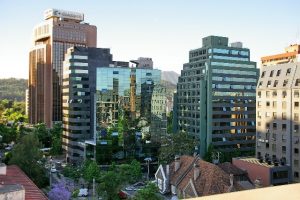One of the most significant benefits of investing in real estate is the ability to generate cash flow. While appreciation in property value over time is great, cash flow is what puts money in your pocket month after month and allows you to build wealth. Here are ten ways to create cash flow through real estate investments:
- Maximize Rents
To increase cash flow, focus on maximizing the rent you charge tenants. Do research on comparable properties in the neighborhood to determine the fair market rent. You want to find the optimal balance between charging enough rent to generate strong cash flow and not pricing the property so high that it sits vacant for long periods. With higher rent, you’ll have higher cash flow.
- Minimize Expenses
Work to minimize all expenses associated with your investment property. See if you can reduce utility bills by making the property more energy efficient. Shop around at different vendors to get the best rates on insurance and maintenance services. Negotiate with your lenders to lower interest rates on mortgages and lines of credit. every dollar you save on expenses goes straight to your bottom-line cash flow.
- Consider Section 8 Tenants
Renting tenants with Section 8 vouchers or other rent assistance programs is a great way to ensure consistent cash flow over time. The government agency subsidizes the rent, so as the owner you get a guaranteed portion of the rent every month. While there may be additional regulations with Section 8, the program provides income stability.
- Increase Occupancy Rates
The higher the occupancy rate of your properties, the higher your cash flow will be. Focus on minimizing vacancy periods by effectively marketing your properties, providing responsive maintenance, and building a stable tenant base. With every extra month a unit is rented out, that’s additional cash flow for the year.
- Charge Late Fees
While you don’t want your tenants paying rent late regularly, for the times they do pay late, charge an appropriate late fee. Late fees are meant to deter tenants from paying late, and they add to your cash flow. However, you don’t want to charge so much in late fees that your tenants cannot catch up and end up evicted.
- Consider Refinancing To A Lower Interest Rate
If you can lower the interest rate on your mortgage through a refinance, your cash flow will increase. Your monthly mortgage payment will be reduced, allowing you to keep more money in your pocket each month. Work with your lender to determine if interest rates have dropped enough for a refinance to make sense based on closing costs.
- Increase Rent Over Time
As property values increase, i.e., appreciate in your area over time and with inflation, rents will also rise. Increase your rents incrementally and consistently over time at the maximum amount the market can bear based on comparables. Higher rents will mean higher cash flow without needing to acquire additional properties. Learn the difference between cash flow vs appreciation.
- Charge Application Fees
When tenants apply to rent a unit from you, charge an appropriate application fee to cover your costs for screening the applicant. Application fees typically range from $30 to $50 per applicant. While the fees don’t amount to a huge amount of cash flow, every dollar helps when you’re managing multiple investment properties.
- Minimize Turnover
Tenant turnover requires time, money, and effort. First, during vacancy periods you lose rental income for the month or months the unit is unoccupied. Then you must spend money preparing and marketing the unit to find new tenants. And finally, once new tenants are in place, there is a higher risk of nonpayment of rent or unforeseen issues. Focus on keeping your quality tenants for as long as possible through good management and service. Long-term tenants are key to consistent cash flow.
- Consider Multi-Family Properties
Multi-family properties with more units mean more rent payments each month and higher potential cash flow. While single-family homes may be easier to manage, apartment buildings or duplex/triplex units generate more gross income to cover expenses and contribute to your cash flow. More units also mean more diversification of risk.yhhh







